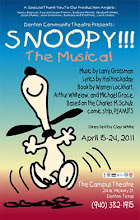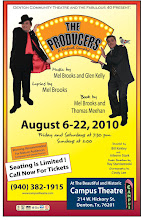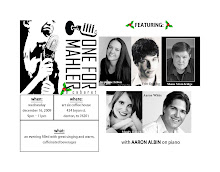A friend of mine posted this on her Facebook page the other day. It's very long, but it's really just AWESOME. There are Christian references in there, but it's not written just for Christian artists (which you will notice as you read).
Get a cup of coffee or tea, sit down, and read it -- all you artists, I'm talking to YOU. It's well worth the read. I've gone in and put in bold some of the things that spoke most loudly to me. Enjoy.
Essay originally written by Makoto Fujimura for Michael Card's Scribbling in the Sand: modified October, 2010
Remember your first love-how much you enjoyed creating as a child. If you ever lose that sense of joy, you will need to reflect on why you lost that spark. Of course, the craft of expression takes much "dying to self" and much discipline. A discipline of any form takes perseverance. But when we are going through a period of training, we must remember the reason for our training. Our journey needs to have a specific direction. Our direction need not be toward being successful and being famous. We need to start from your first love; what we cherish, what we are, and what we value. As T.S. Eliot wrote, "our exploring/Will be to arrive where we started/And know the place for the first time."
C. S. Lewis writes about what the Bible calls the "Good News": "God became man to turn creatures into sons: not simply to produce better men of the old kind but to produce a new kind of man. It is not like teaching a horse to jump better and better but like turning a horse into a winged creature" (Mere Christianity, p. 167). The message of Jesus has been distorted in recent times in culture. The gospel of Jesus is not a message that we can be trained to run faster and jump higher in a race of moralism. The historic work of Jesus is still relevant in the Twenty-First Century because, despite the advancement in technology and communication, the distance between us is greater, and the bloodshed of hatred continues to spill, spreading our "Ground Zero" conditions all over the world. We cannot possibly meet God's standard of righteousness and goodness. We do not love each other. We cannot even keep our own promises, let alone God's commands. St. Paul reflects on his own efforts of trying to meet God's standard and confesses: "What a wretched man I am!" (Romans 7:24) And he emphatically states, "But God demonstrates his own love for us in this: While we were still sinners, Christ died for us" (Romans 5:8). Jesus' love for us can only be received as a gift. Only when we rest upon him as a gift, does he give us wings, to hover between heaven and earth. These wings are gifts of grace, aligned to the original intention for our being. Our journey will begin in a Garden and end in a City. We are headed toward the City of God, a reconciled city, humanity, nature and God.
Since I do not assume you to be necessarily religious, let me call this state of flight "future grace." When we focus on future grace, then our current reality of frustration becomes an opportunity, not a set back. We will, no doubt, battle with our pride, our ego, in doing so. We have been taught to be self-sufficient, that the ego is the only source of creativity. Lewis' suggestion is that there is a greater source outside of ourselves to create from. There will be a quiet joy even within that wrestling. In that world to come, you are already famous and successful. You just can't hear the sounds of accolades yet. The creative journey is not an easy one. Lewis continues in the same passage, "But there may be a period, while the wings are just beginning to grow, when it cannot do so...The lumps on the shoulders...may even give it an awkward appearance."
Have you ever felt awkward, and felt the "lumps"? If you are an artist, perhaps you began your journey realizing that you are different from others. We have gotten used to having these "lumps" and accepted the fact that to the world the "lumps" looks strange and unnatural. Your teachers and your friends may not fully understand your intuition to try to fly with your winged "lumps." What started out, at first, as trying to be yourself, may have become an effort to shield and protect your true identity from the world. Perhaps rebellion became the only path you could journey on. Your "lumps" became a defense mechanism, or even a weapon.
What if Lewis is right, and you are destined to "fly"? What if our awkwardness, and our uniqueness points to the potential of the person we are meant to become? In order to learn to fly, you need to be patient, and ready to experience many failures; we need an environment where we can fail often, but you also need opportunities to peer into the wonders and mysteries of the vista of the world to come. Since many, including those in the institutions of the schools or churches, will not understand, you may have to create "fellowship" yourself. Do not be surprised by their rejections.
In Mark chapter 14, there is a story of a woman who broke all the social rules to get to Jesus, in a small room full of his male disciples. Mary brought a jar she had been saving for her wedding, and we are told that the jar of nard cost a person's annual wages. When Mary barged in, broke the jar and poured her expensive perfumed oil upon Jesus' feet, Judas and the other disciples responded, "What a waste!" In the same way the world may see what you do and see what you are doing as wasteful extravagance. The male disciples were shocked because what she did was not only extravagant, but sexual. The only time that aroma of perfume wafts into the air is on wedding nights! But Jesus said to all: "Leave her alone... Why are you bothering her? She has done a beautiful thing to me... I tell you the truth, wherever the gospel is preached throughout the world, what she has done will also be told, in memory of her" (Mark 14:6, 9). What a commendation! Jesus, the ultimate Artist, recognized Mary as an artist, transgressing in love.
Strict moralism has never produced great art. Like Mary's expensive oil, our expression flows out as a response to grace in our lives. Even if you are not cognizant of a grace reality, you can still create in the possibility of future grace. That takes faith to do, but if you can do that, you will be joining so many artists of the past who wrestled deeply with faith, doubt, poverty, rejection, longing and yet chose to create. Know that the author of creativity longs for you to barge in, break open the gift you have been saving; he will not only receive you, he can bring you purpose behind the battle, and rebuke those who reject you. Mary's oil was the only thing Jesus wore to the cross. He was stripped of everything else, but art can sometimes endure even torture. A friend of mine said that in the aroma of Christ, Mary's oil mixed with Christ's blood and sweat, there are da Vincis and Bachs floating about. He will bring your art, music and dance to the darkness of death, and into the resurrection of the third day.
Don't be a critic when you create. You can look at your work later and discern what is good. Your growth as an artist is not in being able to impress others, or even God. Rather, growth comes by understanding how limited you are. Learning to use your wings means learning the discipline as a means to grace. Give yourself boundaries and goals; start with small things, like having a small table dedicated to your poems. Emily Dickinson wrote her poems on a small 18 inch by 18 inch desk in her room in Amherst. Do not put anything other than your poems, though, on that area. Guard against the world invading your boundaries. Learning to paint, play the piano, or dance has much to do with keeping your self-set boundaries, otherwise you will not own your craft. We are each given unique wings with unique particulars of how to use our wings; no one else can fly for you. You have to jump off the edge, and spread your wings.
Pray. Even if you do not regard yourself as religious, pray. As Simone Weil wrote, "Absolutely unmixed attention is prayer." Artists know instinctively the artistry behind the prayer of the faithful. Pray that our imagination be "baptized" by this future grace. Pray through your materials. Go into galleries and museums and pray so that you can learn to "see." Listen to Vivaldi's Four Seasons or Charlie "Bird" Parker's Burnin' Bird and pray that you can "hear" the music behind the music. Go see Our Town and Othello and pray that you can experience the drama pulsing through our lives. May your work become a prayer, an offering.
Saint Paul wrote: "creation waits in eager expectation for the sons of God to be revealed" (Romans 8:19). The whole realm of nature waits for our arrival onto the stage of life. God "frustrates" creation so that the very groaning of life produces expression by children of God. In the theater of life, we see in the darkness and suffering all around us a world that beckons for our arrival. Our creative endeavors are mandated to begin with that understanding of suffering and darkness. Art helps us to confront darkness head-on. For that reason, you must not cease to create, even in the darkest of hours; by creating, you can participate in announcing that great arrival. You can also help your community to articulate their suffering, with a deeper call for community.
Further, by "showing up" on the stage, what we announce to the world may be a key to unlocking someone else's story. The Good Book tells us that we are loved. Because of that love, which exceeds our own love, we can move out to take risks in creativity. Love is the ultimate fruit of the Spirit and our total dependence on the true source of creativity will nurture love. Art, ultimately, is expression of that love. Therefore we cannot create but by sacrificial love. We need to redefine art and its effectiveness by how it helps us to love one another sacrificially. Fear and terror, in any form, will destroy creativity and people. Fear and terror will twist our creativity to expand our "Ground Zeros." Even when we cannot paint or write, love is available to us a creative resource to share with others. Stand on the ashes of your "Ground Zero"; look up and create in love and hope.
Lastly, remember you are not alone. A soliloquy can become a symphony of soliloquies. I look forward to hearing many voices joining, , through the echoes of time, when future grace becomes reality, when mourning is transformed into dancing. Live generatively, taking today's challenges head on, spreading your wings at the precipice of your Ground Zero, daring to leap into the miraculous.
Wednesday, November 3, 2010
Subscribe to:
Posts (Atom)
















